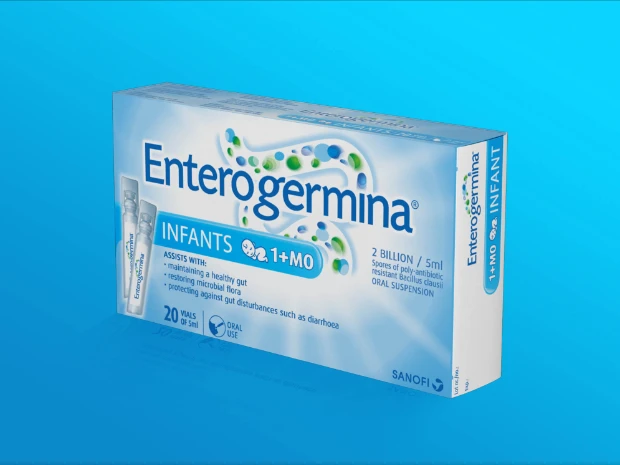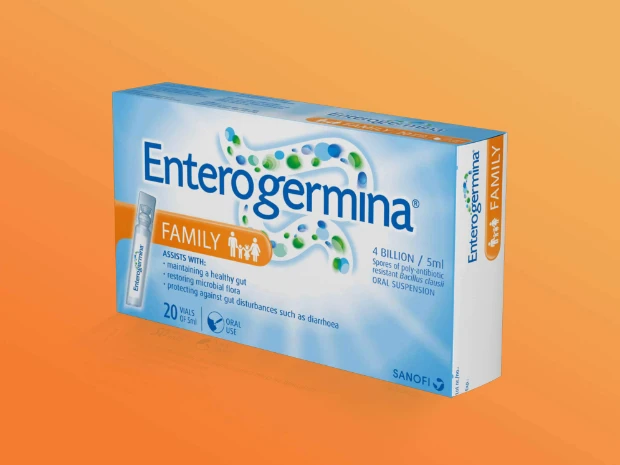Antibiotics & Bacterial Flora
Children are more sensitive to antibiotic treatments than adults are, as their microbiota colonies are still developing. This makes them more vulnerable. 2
Alteration of Microbial Populations
A lack of beneficial microbes means the body is more susceptible to illness, and this includes digestive conditions. 4
Children Struggle to Rebalance Bacteria
This is especially true when those bacteria were reduced by antibiotics. It takes a young body a substantial amount of time to replenish the lost colonies, leaving a large window of vulnerability for a gut disorder to set in. 5
Viral Prescription Medications
Antibiotics can only work against bacterial infections. They are, however, often used to treat viral infections, but they are ineffective against those. This can be unnecessarily harmful to the intestines. 3
Symptoms of Antibiotic-Related Gut Disorders in Children
Children are more sensitive to antibiotic treatments than adults are. 6 Common occurrences include:
Allergic Reaction
Rashes and nausea are common when a child is introduced to an unfamiliar medication.7
Antibiotic-Associated Diarrhoea
Diarrhoea is common in children during antibiotic treatments, because of their effect on the gut microbiome. Kids experiencing this need to drink sufficient water to prevent dehydration. 8
Abdominal Pain
When antibiotics destroy the good bacteria in a child’s intestine, cramping and bloating tend to follow close behind. 9
Antibiotic Effects in Children: Tips & Remedies
When antibiotics have disrupted your child's digestive processes, you need to do what you can to help.
Provide a substantial diet
When the immune system is in a weakened state, a child needs healthy foods that supply energy and nutrients. 11
Increase fluid intake
If the antibiotics are causing diarrhoea, it’s important that you offer sufficient fluids to prevent the very real possibility of dehydration. 12
Keep to a strict schedule and dosage
Keeping to an antibiotic schedule can help a young body with better absorption, and provide much-needed time for regeneration. 10

How to Prevent Antibiotics from Affecting Your Child
As a parent, it’s your responsibility to try to protect the body of your child when it is undergoing antibiotic treatment.
Frequently Asked Questions
It’s important to be aware of what exactly an antibiotic is doing to your child’s digestive system. You probably have a few questions for us. Check out our FAQ.
-
About 1 in every 5 children will develop mild diarrhoea as a side effect to antibiotic treatment. 8
-
Antibiotics are sometimes a necessity when it comes to children’s health. 10 One way to help prevent the negative effects associated with these treatments would be to give the child a probiotic, such as Enterogermina® 2 Billion or 4 Billion.
-
Antibiotic-associated diarrhoea in children can be reduced by replenishing the intestinal flora wiped out by the medications. 8 Bacillus clausii is a spore-forming bacteria that can perform this function.
Our Products
Entrogermina's range of products works with the body to deliver effective solutions to various digestive conditions - the key to internal balance.

How can Bacillus clausii help you solve your gut problems?
Bacillus clausii is a type of spore-forming good bacteria that works to rebalance the flora in your intestine. When consumed regularly, it can help to manage different conditions associated with gut disorders.
Stay Informed
Learn how different daily triggers could be contributing to intestinal disorders, and how a good probiotic could be the ally you didn't know tha tyou needed.
- What to know about antibiotics, Medical News Today, January 2019 [quoted June 2021) https://www.medicalnewstoday.com/articles/10278
- Effect of Commonly Used Pediatric Antibiotics on Gut Microbial Diversity in Preschool Children in Burkina Faso: A Randomized Clinical Trial, PMC, November 2018 [quoted June 2021] https://www.ncbi.nlm.nih.gov/pmc/articles/PMC6262116/
- What Are Antibiotics? WebMD, November 2019 [quoted June 2021] https://www.webmd.com/a-to-z-guides/what-are-antibiotics
- Loss of microbial gut diversity a threat to health? Medical News Today, August 2017 [quoted June 2021] https://www.medicalnewstoday.com/articles/319161
- Replenishing our defensive microbes, PMC, July 2013 [quoted June 2021] https://www.ncbi.nlm.nih.gov/pmc/articles/PMC4102301/
- Antibiotic Side Effects in Children: What Every Parent Should Know, CR, August 2018 [quoted June 2021] https://www.consumerreports.org/antibiotics/antibiotic-side-effects-in-children/
- Antibiotic Allergies: Why Kids Should Be Tested to See if They're Real, Nationwide Children, June 2019 [quoted June 2021] https://www.nationwidechildrens.org/family-resources-education/700childrens/2019/06/antibiotic-allergies
- Antibiotic-associated diarrhea, Sick Kids, January 2015 [quoted June 2021] https://www.aboutkidshealth.ca/Article?contentid=820&language=English
- More common side effects, Healthline, April 2019 [quoted June 2021] https://www.healthline.com/health/infection/antibiotic-side-effects#more-common-side-effects
- General advice about antibiotics, Medicines for Children, June 2019 [quoted June 2021] https://www.medicinesforchildren.org.uk/general-advice-about-antibiotics
- The Nutrition Source, Harvard T.H. Chan, [quoted June 2021] https://www.hsph.harvard.edu/nutritionsource/nutrition-and-immunity/
- How to Prevent Diarrhea While You Take Antibiotics, Health Essentials, January 2020 [quoted June 2021] https://health.clevelandclinic.org/how-to-prevent-diarrhea.while-you-take-antibiotics/
- Benefits of Probiotics for Toddlers, What To Expect, March 2021 [quoted June 2021] https://www.whattoexpect.com/toddler/eating-and-nutrition/probiotics-for-toddlers.








